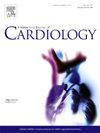心肌病的 "帕多瓦分类":病理生物学基础与形态功能重塑相结合。
IF 3.2
2区 医学
Q2 CARDIAC & CARDIOVASCULAR SYSTEMS
引用次数: 0
摘要
在过去的 20 年中,分子生物学和遗传学方面的科学进步,以及对比增强心脏磁共振(CMR)在形态功能成像和心肌组织结构特征分析方面的临床应用,为我们了解心肌病在遗传学和生物学背景以及临床表型特征方面的独特性提供了重要的新见解。因此,有必要对心肌疾病的现有命名框架和病理生物学分类进行适当的修订和升级。本文根据独特的病理生物学基础(遗传学、分子生物学和病理学)和临床表型模式(形态功能和结构特征),提出了心肌病的新定义和分类方法,从而提出了三种不同的疾病类别,每种类别都有遗传或非遗传病因,并根据 "解剖 "和 "功能 "特征进行综合命名,即肥厚型/限制型(H/RC)、扩张型/动力不足型(D/HC)和瘢痕型/致心律失常型心肌病(S/AC)。将新提出的分类方法应用于临床实践,对于设计有针对性的临床管理和评估受影响患者的预后至关重要。虽然目前对心肌病的治疗主要是姑息性的,以药物、导管消融、设备或手术干预为基础,旨在预防和控制心衰和恶性心律失常,但更好地了解病理生物学上不同心肌病的发病和进展的基本机制,可能有助于开发针对特定疾病的治疗方法。本文章由计算机程序翻译,如有差异,请以英文原文为准。
The “Padua classification” of cardiomyopathies: Combining pathobiological basis and morpho-functional remodeling
Over the last 20 years, the scientific progresses in molecular biology and genetics in combination with the increasing use in the clinical setting of contrast-enhanced cardiac magnetic resonance (CMR) for morpho-functional imaging and structural myocardial tissue characterization have provided important new insights into our understanding of the distinctive aspects of cardiomyopathy, regarding both the genetic and biologic background and the clinical phenotypic features. This has led to the need of an appropriate revision and upgrading of current nosographic framework and pathobiological categorization of heart muscle disorders.
This article proposes a new definition and classification of cardiomyopathies that rely on the combination of the distinctive pathobiological basis (genetics, molecular biology and pathology) and the clinical phenotypic pattern (morpho-functional and structural features), leading to the proposal of three different disease categories, each of either genetic or non-genetic etiology and characterized by a combined designation based on both “anatomic” and “functional” features, i.e., hypertrophic/restrictive (H/RC), dilated/hypokinetic (D/HC) and scarring/arrhythmogenic cardiomyopathy (S/AC).
The clinical application of the newly proposed classification approach in the real-world practice appears crucial to design a targeted clinical management and evaluation of outcomes of affected patients. Although current treatment of cardiomyopathies is largely palliative and based on drugs, catheter ablation, device or surgical interventions aimed to prevent and manage heart failure and malignant arrhythmias, better knowledge of basic mechanisms involved in the onset and progression of pathobiologically different heart muscle diseases may allow to the development of disease-specific curative therapy.
求助全文
通过发布文献求助,成功后即可免费获取论文全文。
去求助
来源期刊

International journal of cardiology
医学-心血管系统
CiteScore
6.80
自引率
5.70%
发文量
758
审稿时长
44 days
期刊介绍:
The International Journal of Cardiology is devoted to cardiology in the broadest sense. Both basic research and clinical papers can be submitted. The journal serves the interest of both practicing clinicians and researchers.
In addition to original papers, we are launching a range of new manuscript types, including Consensus and Position Papers, Systematic Reviews, Meta-analyses, and Short communications. Case reports are no longer acceptable. Controversial techniques, issues on health policy and social medicine are discussed and serve as useful tools for encouraging debate.
 求助内容:
求助内容: 应助结果提醒方式:
应助结果提醒方式:


